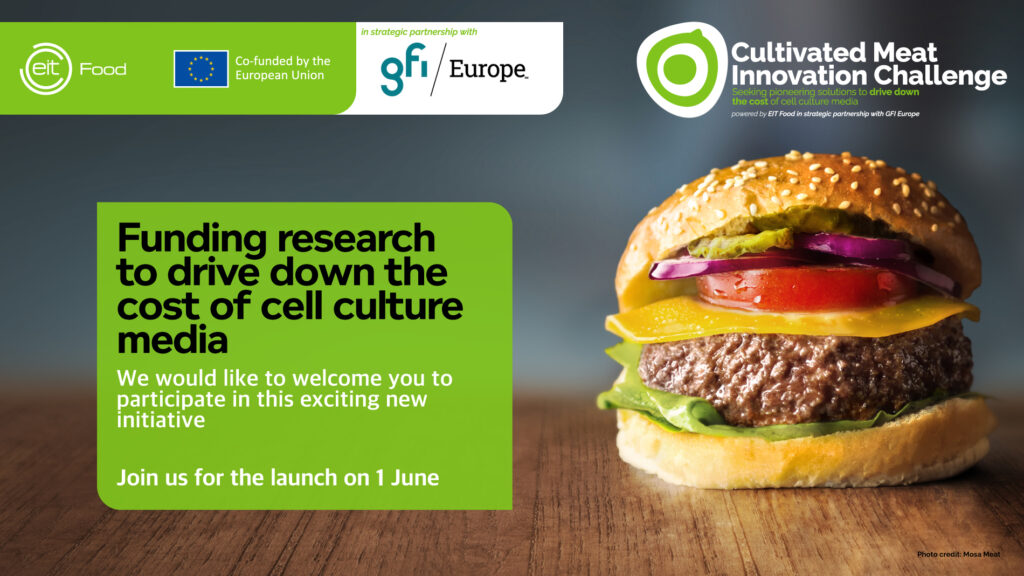Innovators receive €400,000 prize to commercialise cultivated meat
27 October 2022
Researchers investigating how to reduce the cost of cultivated meat have won a €400,000 prize.

Researchers investigating how to reduce the cost of cultivated meat have been awarded a €400,000 prize.
The winners of the Cultivated Meat Innovation Challenge – which aims to bring down the cost of cultivating meat from cells – include companies exploring microalgae and byproducts from agroforestry.
The Good Food Institute Europe, a nonprofit transforming meat production to create a more sustainable food system, partnered with EIT Food to launch the challenge in a bid to slash the cost of cell culture media – one of the most significant barriers to commercialising cultivated meat.
“These teams now have a huge opportunity to drive prices down, and their work could have a major impact on how quickly we can scale up production.”
Seren kell, Good Food Institute Europe Science and technology manager
Cultivated meat is the same as the beef, pork, chicken and seafood people enjoy today – but made in cultivators instead of by farming animals, and could cause up to 92% less greenhouse gas emissions than conventional meat.
GFI has identified the cost of cell culture media as one of the key technical challenges preventing this food from being produced at commercial scale.
Cell culture media is the nutrient-rich broth that feeds the cells as they grow in a cultivator – similar to the fermentors used to brew beer. It is an essential part of the process, but remains the most expensive element of cultivating meat.
The winners, announced on Wednesday 26 October, have been awarded €100,000 each and will be supported to bring their ideas to market within the next three years.
They are:
- Portuguese research organisation S2AQUAcoLAB, who will assess whether microalgae can produce the ingredients needed to cultivate seafood – which could help to prevent problems such as overfishing. Microalgae can be grown in large tanks, making production of this growth factor incredibly efficient if it proves effective.
- German pharmaceutical company LenioBio, who will use their existing technology to quickly produce proteins by stripping material from rapidly-growing plant cells. They will be partnering with leading food producers to demonstrate how this can be used to develop the growth factors needed for cultivated meat.
- The UK’s 3D Bio-Tissues Ltd, a spin-out from Newcastle University producing human corneas for eye transplants, who will use their existing formula synthesised from the byproducts of agroforestry and other industries. Working with the global donor-funded research institute New Harvest, they will combine this product with growth factors produced by Cambridge-based QKine to reduce the amount of cell culture media needed to cultivate meat.
- Israeli company BioBetter, who use technology that ‘teaches’ tobacco plants to produce the growth factors cells need to reproduce – in a process similar to that which is already used to create vaccines and other medicines. The company describes the plants as ‘ecofriendly bioreactors’ because the protein can be extracted from the entire plant, which can then be harvested up to four times a year.
Seren Kell, Science and Technology Manager at the Good Food Institute Europe, said: “It’s fascinating to see the sheer diversity of these ideas and the wide range of organisations that have come forward to crack one of the biggest challenges preventing cultivated meat from becoming affordable to all.
“These teams now have a huge opportunity to drive prices down, and their work could have a major impact on how quickly we can scale up production – potentially slashing the carbon emissions of our food system while satisfying rising global demand for meat.”
